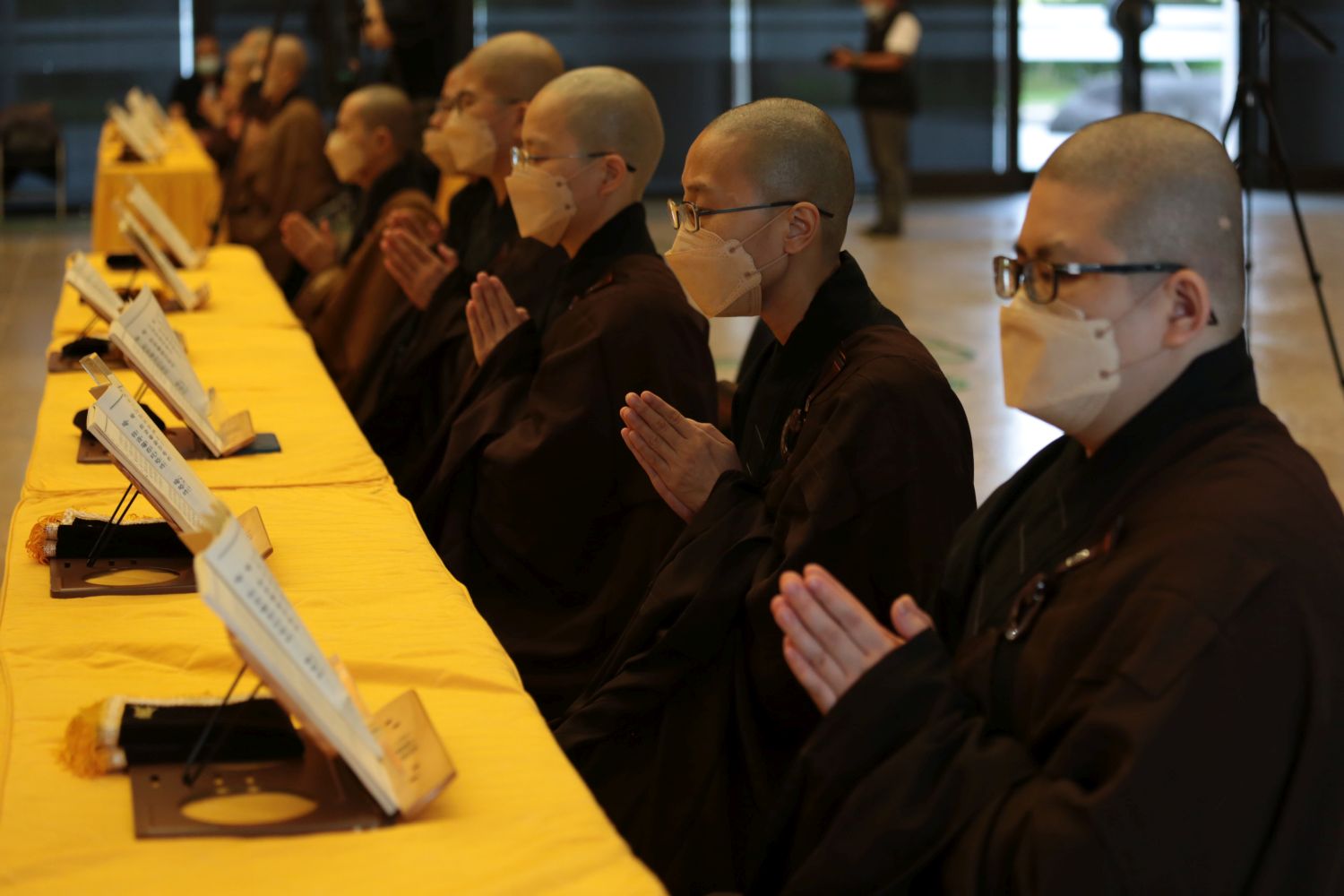Special Topics
Q3: Why does Buddhism maintain that care and concern for the deceased can be conveyed through Dharma assemblies?
 A: In Buddhism, the highest blessing for the deceased is helping them hear the Buddhadharma and resolve their afflictions, thereby leaving suffering behind by moving on to a better rebirth. Buddhism believes in spiritual response. The driving force to attain spiritual response lies in utter sincerity, as such familial affection has the most effect in triggering our utmost, earnest sincerity. Many kalpas ago, Earth Treasure (Ksitigarbha) Bodhisattva had lived as a filial daughter in several incarnations, whereby she sincerely performed Buddhist services for the sake of her deceased mother. By prostrating and making offerings to the Buddha, reciting the Buddha's name, and praying to the Buddha, she was able to invoke the spiritual response of a buddha or an arhat, receiving their guidance on how she could help to deliver her deceased mother.
A: In Buddhism, the highest blessing for the deceased is helping them hear the Buddhadharma and resolve their afflictions, thereby leaving suffering behind by moving on to a better rebirth. Buddhism believes in spiritual response. The driving force to attain spiritual response lies in utter sincerity, as such familial affection has the most effect in triggering our utmost, earnest sincerity. Many kalpas ago, Earth Treasure (Ksitigarbha) Bodhisattva had lived as a filial daughter in several incarnations, whereby she sincerely performed Buddhist services for the sake of her deceased mother. By prostrating and making offerings to the Buddha, reciting the Buddha's name, and praying to the Buddha, she was able to invoke the spiritual response of a buddha or an arhat, receiving their guidance on how she could help to deliver her deceased mother.After the death of our loved ones, our Buddhist practice can still benefit them regardless of which realm they have been reborn into. When we aspire to participate in a Dharma assembly to create merit for their sake, our sincerity at the moment can invoke our deceased loved ones who are in the intermediate state to participate in the assembly to listen to the sutra. Even if they had never heard any teaching of the Buddhadharma while alive, hearing the sutra after death will still enable them to comprehend and benefit from it, according to their individual karmic capacity.
Related articles:
Deliverance Service Benefits Both the Living and the Deceased
The Seventh Lunar Month Dharma Assemblies (I): The Ullambana Assembly – Repay Our Parents' Kindness with Merit Transfer
Dharma Assemblies in Lunar July (II): Yogacara Ulka-mukha Dharma Service to Save Hungry Ghosts from Suffering
Dharma Assemblies in Lunar July (III): Practicing Repentance at Emperor Liang’s Repentance Eliminates Delusion, Karma, and Suffering
Q1: Where will our relatives go after death? If they are already reborn, would our prayers for the deceased help them?
Q2: Is it necessary to participate in Dharma assemblies if they are not performed for the deliverance of a deceased relative?
Q3: Why does Buddhism maintain that care and concern for the deceased can be conveyed through Dharma assemblies?
Q4: If we are unable to attend a Dharma assembly at a temple or monastery, can we, alternatively, perform the deliverance ritual at home for our deceased relatives or friends?
Q5: How do we go about dedicating the merit? Can our deceased relatives actually receive the merit that is being dedicated?
Resource: Issue 240 of Humanity Magazine, Dharma Drum Publishing Corporation
Translation: Cheng-yu Chang (張振郁)
Editing: Keith Brown, Chiacheng Chang (張家誠)
